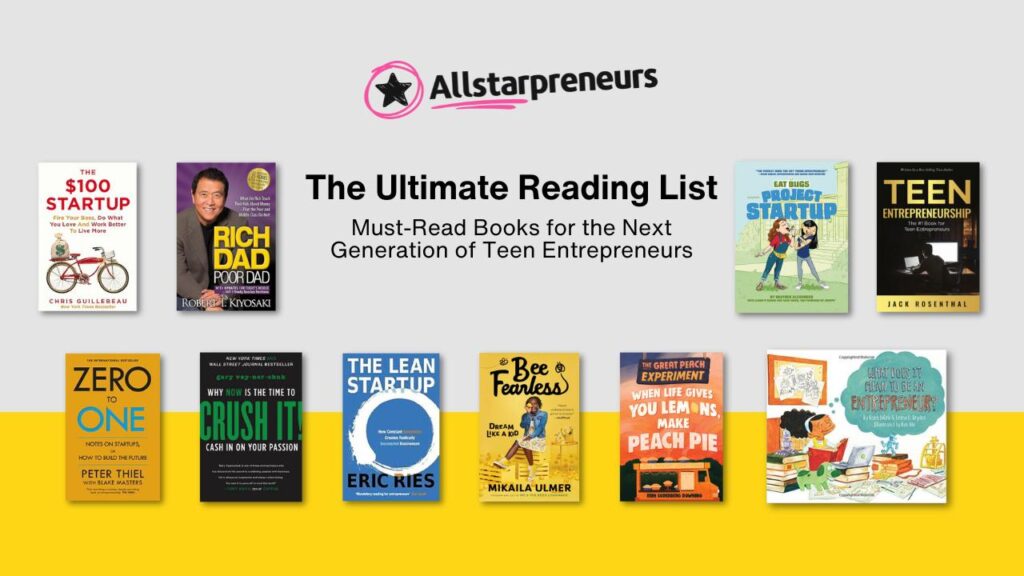Hey Allstarpreneurs!
Starting a business as a teenager can be both exciting and challenging. Whether you’re full of ideas or looking for some inspiration, reading about the journeys and strategies of successful entrepreneurs can be incredibly valuable. That’s why I’ve put together a list of my top 10 must-read books for teenage entrepreneurs. These books cover everything from practical advice on starting a business to stories of young entrepreneurs who have made their dreams a reality.
Dive in, get inspired, and let’s turn those ideas into income!
My Top 10 Entrepreneurship Books Every Teen Must Read:

1. “The Lean Startup” by Eric Ries
This book introduces the lean startup methodology, which provides a scientific approach to creating and managing startups. Eric Ries advocates a build-measure-learn feedback loop that allows entrepreneurs to continuously test their vision and adapt their strategies based on customer feedback and empirical data. The book covers concepts like minimum viable products, validated learning, innovation accounting, and pivoting. Through real-world case studies, it demonstrates how to efficiently allocate resources, rapidly iterate, and ultimately increase the chances of startup success.

2. “Zero to One” by Peter Thiel
Written by the co-founder of PayPal and Palantir, this book challenges conventional thinking about startups and entrepreneurship. Thiel argues that true innovation and progress come from creating something entirely new (“going from 0 to 1”), rather than incrementally improving existing products or services. He provides insights on identifying promising opportunities, building a talented team, and developing a unique and valuable product or service. The book also explores the characteristics of successful founders and companies and offers strategies for navigating competition and building a monopoly.

3. “Rich Dad Poor Dad” by Robert Kiyosaki
While not specifically about entrepreneurship, this personal finance classic teaches fundamental money management principles that are essential for aspiring entrepreneurs. Through the contrasting perspectives of his “rich dad” and “poor dad,” Kiyosaki emphasizes the importance of financial literacy, building assets, and developing an entrepreneurial mindset. The book covers topics like accounting, investing, real estate, and leveraging money to create passive income streams. It aims to shift readers’ perspectives on money and empower them to take control of their financial futures.

4. “The $100 Startup” by Chris Guillebeau
This book is a practical guide for turning a passion or skill into a profitable small business with minimal investment. Guillebeau shares case studies of individuals who have launched successful businesses with startup costs of $100 or less. The book covers strategies for identifying viable business ideas, finding a target market, building a brand, marketing on a shoestring budget, and generating revenue streams. It also addresses common challenges faced by solopreneurs and provides tips for maintaining work-life balance.
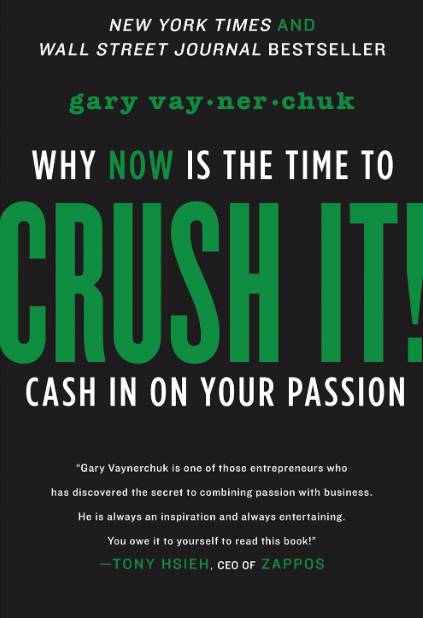
5. “Crush It!” by Gary Vaynerchuk
In this book, Vaynerchuk, an early investor in companies like Facebook and Twitter, emphasizes the power of personal branding and leveraging digital platforms and social media to build a business. He shares his own entrepreneurial journey and provides actionable advice on creating valuable content, engaging with an audience, and monetizing a personal brand. The book covers topics like identifying one’s passion, creating a content strategy, building an online presence, and using social media effectively for marketing and customer engagement.
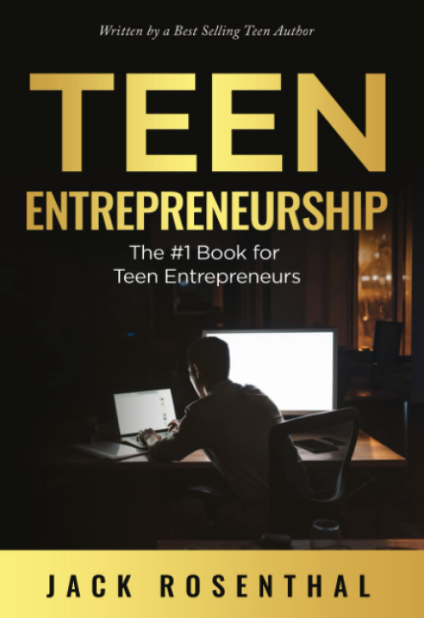
6. “Teen Entrepreneurship” by Jack Rosenthal
Specifically written for teenage readers, this book provides a comprehensive introduction to entrepreneurship and starting a business. It covers fundamental concepts like identifying business opportunities, developing a business plan, understanding finances and accounting, marketing and sales strategies, and legal considerations. The book also includes real-life examples of successful teen entrepreneurs and offers practical exercises and activities to help readers apply the concepts and develop their own business ideas.
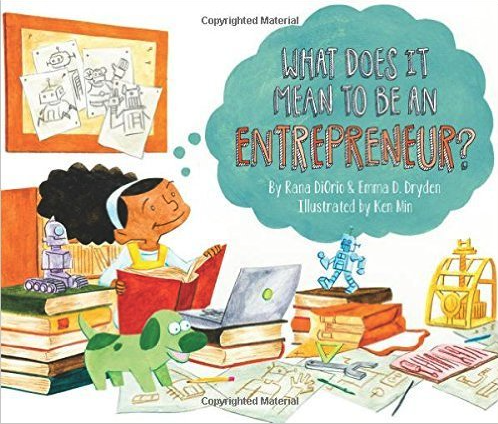
7. “What Does It Mean To Be An Entrepreneur?” by Rana DiOrio
This illustrated book is designed to introduce entrepreneurial thinking to young children in an engaging and accessible way. Through colorful illustrations and simple language, it explains what an entrepreneur is, the characteristics and mindset required, and the process of turning an idea into a business. The book aims to inspire creativity, problem-solving, and an entrepreneurial spirit in young readers, while also teaching basic business concepts like identifying needs, creating solutions, and generating revenue.
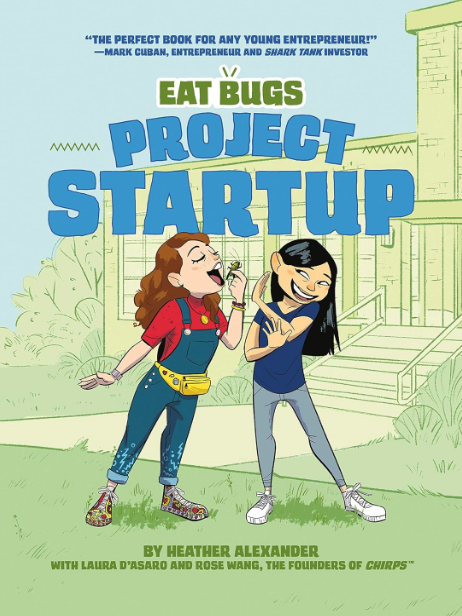
8. “Eat Bugs: Project Startup” by Heather Alexander
This fictional story is based on the real-life startup of a company that produces edible insect products. It follows the journey of two young entrepreneurs as they navigate the challenges of starting a business, from developing their product idea and conducting market research to securing funding and scaling their operations. The book provides an engaging narrative that introduces entrepreneurial concepts like prototyping, customer validation, and pitching to investors, while also exploring themes of sustainability and alternative food sources.

9. “Bee Fearless” by Mikaila Ulmer
This memoir chronicles the inspiring story of Mikaila Ulmer, who started her lemonade business at the age of four. Ulmer shares her entrepreneurial journey, from developing her family’s flaxseed lemonade recipe and selling it at local events to securing a deal on Shark Tank and expanding her business nationwide. The book offers insights into her entrepreneurial mindset, problem-solving strategies, and the challenges she faced as a young entrepreneur. It aims to inspire readers to pursue their passions and overcome obstacles with determination and creativity.
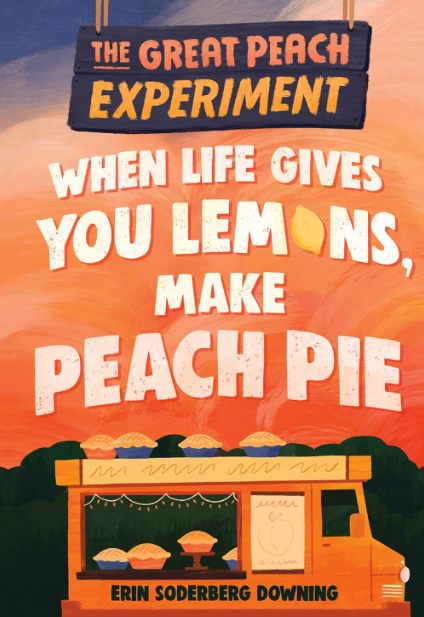
10. “The Great Peach Experiment” by Erin Soderberg Downing
This novel follows the story of a family who starts a peach food truck business after their farm faces financial difficulties. Through their entrepreneurial journey, the book explores themes of teamwork, problem-solving, and perseverance. It introduces readers to various aspects of starting a food business, such as developing a menu, marketing and branding, managing operations, and navigating regulations. The narrative also touches on the importance of community support and the challenges of balancing family and business responsibilities.
Conclusion
I hope this list get your startup ideas flowing… I’ve compiled a search list for you if you want more entrepreneurship books for teenagers to dive into the world of entrepreneurship and start thinking about your own business ideas. Remember, reading is just the first step. To truly bring your ideas to life, you’ll need practical guidance and support.
That’s why I invite you to subscribe to the Teen Startup Squad mailing list. You’ll get access to ideas, inspiration, and implementation hacks designed specifically for future founders like you. Join our community of young entrepreneurs and start your journey towards becoming an Allstarpreneur today!
Keep dreaming big and making those ideas happen!

